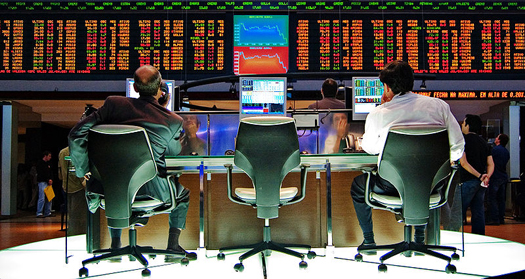

We may earn revenue from the products available on this page and participate in affiliate programs. Learn more ›
Theft of trading ideas has long been a proud tradition on trading floors across the world. There was a time when smart traders would hang out in the same restaurants, bars, and flophouses as their institutional counterparts trying to catch a hint about tomorrow’s dealings or to manipulate another trader with some skullduggery–and then try to take advantage of the trade. These days it’s common knowledge that computers do a lot of our financial dealing, but a somewhat frightening article in the London Review of Books describes how the algorithms have now taken up the trader’s practice of trying to fool each other.
Most trading algorithms execute simple tasks. Say a large institution wants to purchase a large chunk of stock in a company: the program will seek out shares and buy them in many, many small quantities so as not to send the price soaring with a massive order–and to stop other traders from seeing what they’re up to and getting in on the deal. Called VWAPs, they’re fairly benign.
But Donald MacKenzie, a professor of sociology at Edinburgh University, tells us that algorithms are now stalking the VWAPs, trying to surreptitiously figure out their intentions so they can get out in front of big trades, buying shares ahead of VWAPs and then selling them back to it at a gain.
But there are craftier and decidedly less ethical programs out there seeking to manipulate the market outright. Called “spoofers,” they might buy a big chunk of shares of a certain ticker. Then the program issues a bunch of buy orders that are fractionally below that price–an indicator to anyone watching the buy order volume that the stock is in demand. This would spur other algorithms (or human traders) to purchase the stock on the prospect that demand will push up the price. The spoofer then dumps its shares and quickly cancels its buy orders when the price rises on the buying pressure it created. Sneaky.
Basically, the algorithms are now trying to outfox other algorithms. That’s particularly troublesome given that computer programs are basically running financial markets these days. We all saw what happens when the algorithms get irrational during last year’s flash crash, when the entire U.S. market shed 6 percent of its value in five minutes due to algorithmic share dumping. While these programs are inherently stabilizing, it’s a bit frightening to think of what might happen if some super-algorithm really got the better of his computational counterparts.
[London Review of Books via io9]
